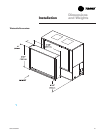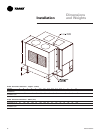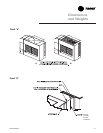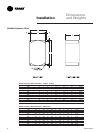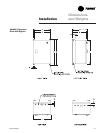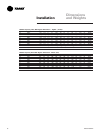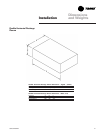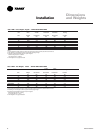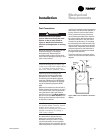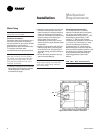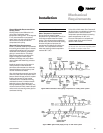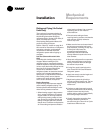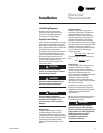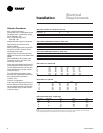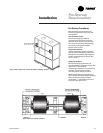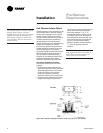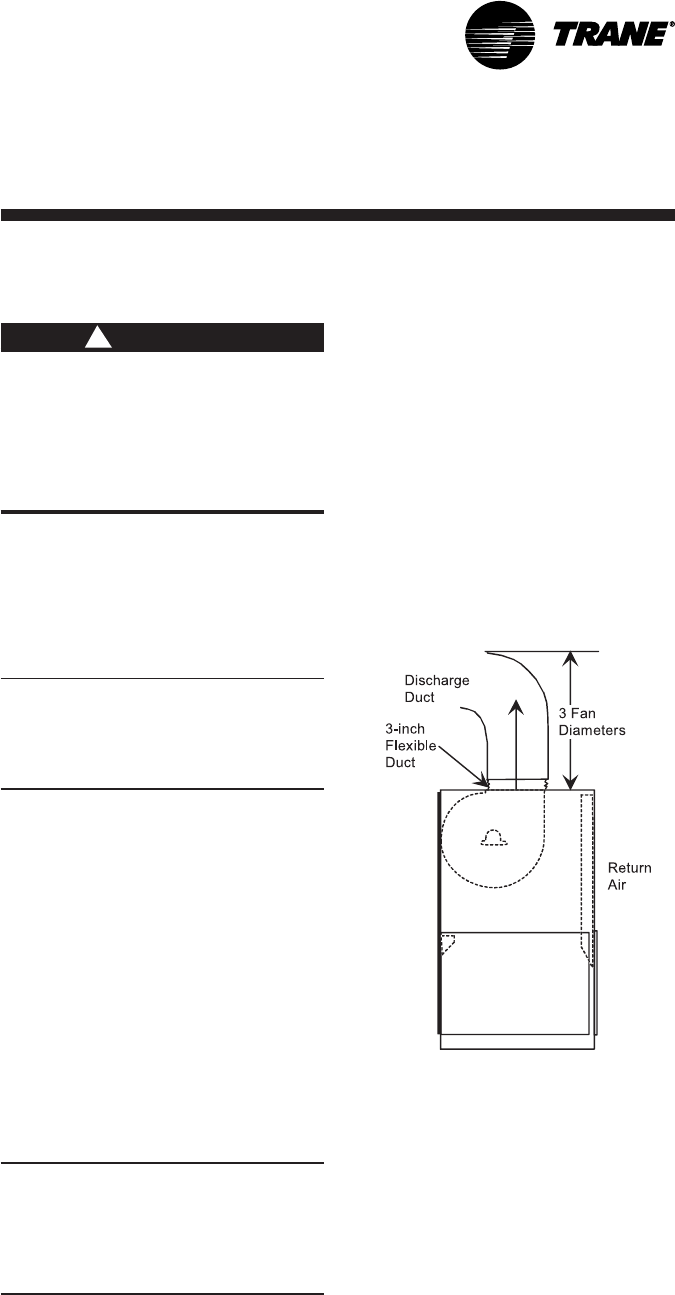
SCXG-SVX01B-EN 33
Mechanical
Requirements
Duct Connections
Disconnect electrical power
source before servicing the unit.
Failure to do so may result in
injury or death from electrical
shock or entanglement in moving
parts.
Return air enters the rear of the unit and
conditioned supply air discharges
through the top. Attach supply air
ductwork directly to the unit’s top panel,
around the fan discharge opening. A duct
collar is not provided.
Note:Units equipped with the flexible
horizontal discharge plenum option may
include a duct collar when holes are factory
cut. If discharge openings are field-cut,
refer to the “Plenum Installation” section.
Install all air ducts according to the
National Fire Protection Association
standards for the “Installation of Air
Conditioning and Ventilation Systems
other than Residence Type (NFPA 90A)
and Residence Type Warm Air Heating
and Air Conditioning Systems (NFPA
90B).
Make duct connections to the unit with a
flexible material such as heavy canvas. If
a fire hazard exists, Trane recommends
using Flexweave 1000, type FW30 or
equivalent canvas. Use three inches for
the return duct and three inches for the
discharge duct. Keep the material loose
to absorb fan vibration.
Note: The compressors and fan assembly
are internally isolated. Therefore, external
isolation devices (spring mounting
isolators) are at the discretion of a vibration
specialist consulted by the building or
HVAC system designer.
Run the ductwork straight from the
opening for a minimum of three fan
diameters. See Figure I-MR-1. Extend
remaining ductwork as far as possible
without changing size or direction. Do not
make abrupt turns or transitions near the
unit due to increased noise and excessive
static losses. Use elbows with splitters or
turning vanes to minimize static losses.
Poorly constructed turning vanes may
cause airflow generated noise. Align the
fan outlet properly with the ductwork to
decrease noise levels in the duct and to
increase fan performance. To complete
trunk ductwork to the VAV terminal units,
refer to the VAV box manuals for specific
requirements. Check total external static
pressures against fan characteristics to
be sure the required airflow is available
throughout the ductwork.
To achieve maximum acoustical perfor-
mance, minimize the duct static pressure
setpoint.
Figure I-MR-1. Duct connection recommen-
dations.
ƽƽ
ƽƽ
ƽ
WARNING
!
Installation



